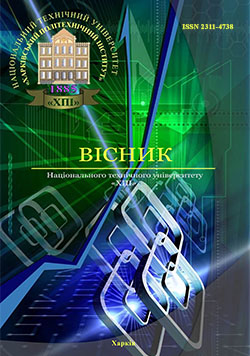DECISION-MAKING IN THE IMPLEMENTATION OF IT-PROJECTS THROUGH SIMULATION
DOI:
https://doi.org/10.20998/2413-3000.2016.1174.3Keywords:
IT-project management, project model, simulationAbstract
The article analyzes the key success factors of IT-projects, which can be influenced. A key factor is the "optimization". Because of the complexity and non-linear dependence between the indicators, the use of any optimization models is not possible. In practice, the analysis is generally limited to a small number of key scenarios. Automation of the process is possible by means of optimization experiments based simulation. The work for this project proposed simulation model IT-companies, based on the principles of integration of system dynamics and cognitive modeling. Shown examples of experiments with model: simulation, optimization of the experiment, an experiment on the Monte Carlo method. Changes in parameter values when making the various administrative decisions has been analyzed. To perform scenario analysis for the input variables are determined by parameters that define their targets. With the help of optimization experiments, it is possible to find the values of model parameters under which the simulation results most closely match the specified data. The ways to adapt the input to achieve predictable results has been proposed.References
Project Management Institute. (2013). A Guide to the Project Management Body of Knowledge (PMBOK® Guide) Fifth Edition, 14 Campus Blvd., Newtown Square, PA 19073-3299 USA: Project Management Institute.
The Standish Group International. The CHAOS Manifesto 2013. standishgroup.com. Retrieved from http://www.standishgroup.com.
Voznyi O. M., Koshkin K. V., & Knyrik, N. R. (2015). Imitacionnoe modelirovanie IT-proektov na osnove setej Petri [Simulation modeling of IT projects based on Petri nets]. Visnyk NTU «HPI» - Bulletin NTU «KhPI», 1, 24–28 [in Russian].
Burkov V. N., Bushuyev S. D., Voznyi O. M., Gaida A. Y., Grygorian T. G., Ivanova A. A. «et al.» (2015). Upravlenie resursami raspredelennyh proektov i programm [Management of the distributed projects and programs resources]. Nikolaev: izdatel' Torubara V. V, 386 [in Russian].
Koshkin K. V., Voznyi A. M. & Knyrik N. R. (2014). Otsenka stsenariyev razvitiya organizatsionnykh sistem na osnove model'nykh eksperimentov [Scenario assessment of organizational systems development based on a model experiments]. Visnyk NTU «HPI». – Bulletin NTU «KhPI», 2, 24–28 [in Russian].
Kravchenko T. K. (2013). Upravlenie trebovanijami pri realizacii IT-proektov [Requirements management in the implementation of IT projects]. Biznes-informatika. – Biznes-informatika, 3, 63-71 [in Russian].
Vissija H., Krasnoproshin V. V., & Val'vachev A. N. (2008). Tehnologija vypolnenija IT-proektov kollektivami raspredelennyh ispolnitelej [Technology implementation IT project teams distributed performers] Iskusstvennyj intellekt. – Artificial Intelligence, 3, 63-69 [in Russian].
Sokolovskaja Z. N., & Jacenko N. V. (2013). Prikladnoe imitacionnoe modelirovanie kak analiticheskaja osnova prinjatija upravlencheskih reshenij [Application simulation as an analytical basis for management decision-making] Bіznesіnform. – Bіznesіnform, 6, 69-76. [in Russian].
Downloads
Published
Issue
Section
License
Copyright (c) 2016 Константин Викторович КОШКИН, Александр Михайлович ВОЗНЫЙ, Наталья Ромуальдовна КНЫРИК

This work is licensed under a Creative Commons Attribution-NonCommercial-ShareAlike 4.0 International License.
Our journal abides by the Creative Commons copyright rights and permissions for open access journals.
Authors who publish with this journal agree to the following terms:
Authors hold the copyright without restrictions and grant the journal right of first publication with the work simultaneously licensed under a Creative Commons Attribution-NonCommercial-ShareAlike 4.0 International License (CC BY-NC-SA 4.0) that allows others to share the work with an acknowledgement of the work's authorship and initial publication in this journal.
Authors are able to enter into separate, additional contractual arrangements for the non-commercial and non-exclusive distribution of the journal's published version of the work (e.g., post it to an institutional repository or publish it in a book), with an acknowledgement of its initial publication in this journal.
Authors are permitted and encouraged to post their published work online (e.g., in institutional repositories or on their website) as it can lead to productive exchanges, as well as earlier and greater citation of published work.

